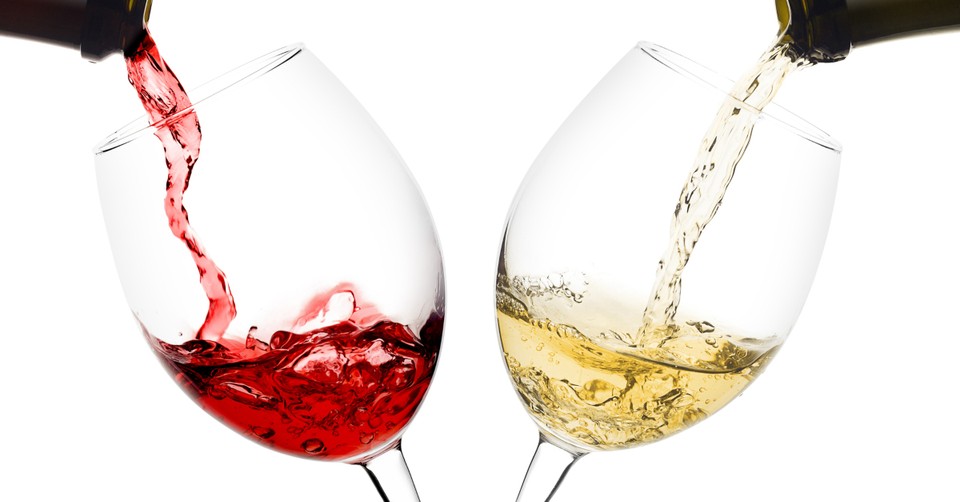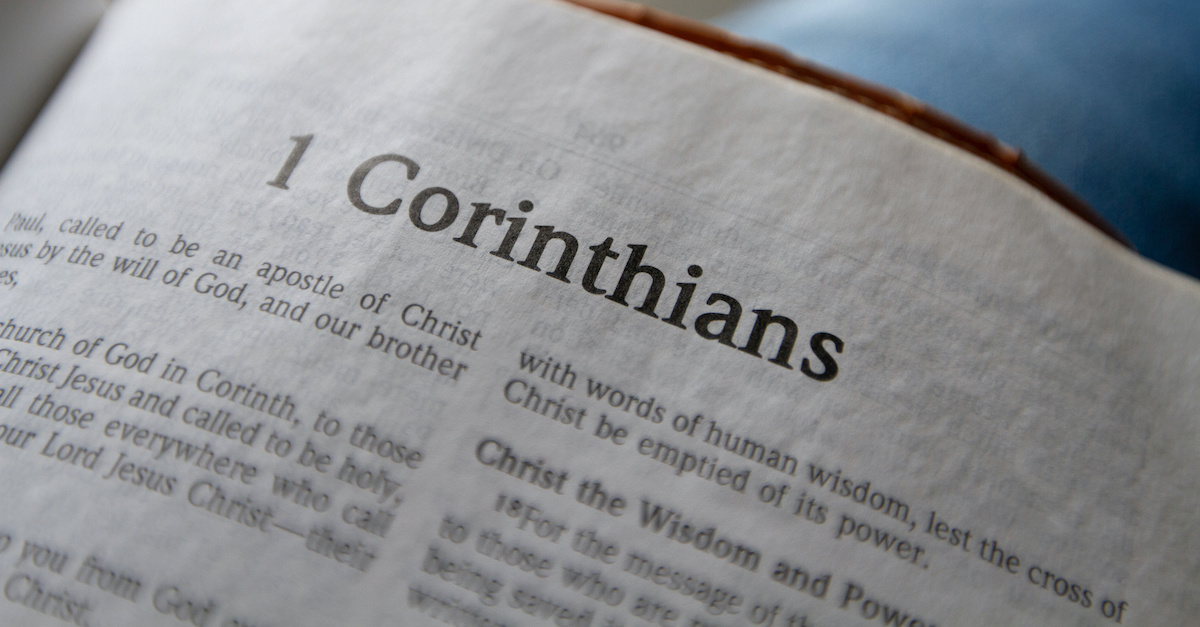What Does Jesus Say about Alcohol in the Bible?

Amongst Christians, alcohol remains a ‘divisive’ topic; although viewpoints have changed dramatically over the years. Opinions range from old school church mentality where everything about consuming alcohol is wrong, to now churches making and selling their own beer.
Where does that leave you? You may be wondering...what does Jesus say about alcohol in the Bible? Let’s first look at where alcohol is mentioned in context with Jesus in the Bible.
Jesus Drank Wine
I know we don’t often think of Jesus in this light, but he did drink wine as it was part of the cultural norm. Here are three instances I want to direct your attention to:
1. The Wedding
You’re probably familiar with the story of the wedding at Cana in John 2. In this wedding, they are celebrating and the wine runs out. Jesus then eventually turns the water into wine. I think it is safe to say that if Jesus was present and celebrating with the other guests, he most likely consumed wine because he created it to share at the wedding.
2. Luke 7:33-34
For John the Baptist came neither eating bread nor drinking wine, and you say, ‘He has a demon.’ The Son of Man came eating and drinking, and you say, ‘Here is a glutton and a drunkard, a friend of tax collectors and sinners.’
In this instance, Jesus is speaking and exposing the duplicity of the Pharisees. They complained about John who never touched wine and they complained about Jesus who did.
For the sake of clarity, Jesus didn’t get drunk. The Pharisees accused him of this because he chose to eat with sinners who were obviously consuming wine with their meal.
3. The Last Supper
And he took a cup of wine and gave thanks to God for it. He gave it to them, and they all drank from it. – Mark 14:23 (NLT)
We see that Jesus drank wine at the last supper which we know in this instance was a symbol of his blood that was about to be spilled.
Why is all of this important?
What we discover from these passages is that Jesus had no issue with the consumption of wine, which is an alcoholic beverage.
Now, before you jump to any conclusion and get in your car to head down to the local pub, pause to consider this: I don’t believe in these instances Jesus was giving a license to consume alcohol, nor was he taking it away. In fact, these weren’t even guidelines. They were just points in time where we saw Jesus consuming wine, and it was generally consumed with a meal.
The guidelines for consumption of wine or alcohol come from the Apostle Paul.

To Drink or Not to Drink, Here Is the 2-Part Guideline
If you struggle with alcohol (or it runs in your family), then none of these guidelines apply to you. If that is your situation, my guideline is simple: stay as far away from it as you possibly can.
If that is not your situation, then keep reading. When it comes to alcohol consumption there are really two things to consider:
1. How it Affects You
You say, “I am allowed to do anything”—but not everything is good for you. And even though “I am allowed to do anything,” I must not become a slave to anything. – 1 Corinthians 6:12 (NLT)
When it comes to alcohol consumption the question should be not just should you drink it or not but what happens to you when you do? Is it good for you? In other words, why are you taking that drink?
Let me give you two scenarios. If you are out to eat and you have a glass of wine with the meal, I personally don’t see anything wrong with that. After all, this is what Jesus did.
However, if you’ve had a hard day and you just want to have a glass “to take the edge off,” this is where it can get a little tricky. You’re turning to the glass for a level of comfort. I believe it is in this space you must proceed with caution.
The same is true if you turn to a bag of Oreos and a gallon of milk for comfort as well. You may not get drunk, but it can pack on pounds which isn’t good for you, either.
The point is: you don’t want to become a slave to it.
If you feel this might be a problem for you, then maybe it’s a good idea not to drink. It doesn’t mean that it’s not right for everybody, it just means it’s not right for you. Be careful of the “I can handle it” mentality—because that can open the door to you becoming a slave to it.
What’s more, if you’re consuming alcohol because you want to “fit in” with what everyone else is doing, that also is a dangerous motivation, and I would suggest you run from that as well.
2. How it Affects Others
You say, “I am allowed to do anything”—but not everything is good for you. You say, “I am allowed to do anything”—but not everything is beneficial. Don’t be concerned for your own good but for the good of others. – 1 Corinthians 10:23-24 (NLT)
I find it very interesting that Paul uses the exact same argument but directs the object of the argument not towards yourself but to others. The other side of the alcohol question is: how does your drinking alcohol affect those around you?
There may be situations where you may choose to not consume an alcoholic beverage, not because it’s not good for you—but because it’s not good for someone else.
As Christians, you must recognize that your actions influence those around you, and the more influence you have, the more you have to be mindful of your actions. What you say and what you do matters. The person who says I can do what I want to do without regard for those around them is not operating with the love of Christ. The question then becomes not whether you can do it, but should you. In other words, just because you can doesn’t mean you should.
The more you grow and mature in your journey with Christ, the more you begin to understand that it’s not about you, but it’s about caring for those around you.
Do nothing out of selfish ambition or vain conceit. Rather, in humility value others above yourselves, not looking to your own interests but each of you to the interests of the others. – Philippians 2:3-4

The Ultimate Factor
When you get to the heart of the matter, the decision to drink alcohol or not is a personal decision that comes with a huge consideration. You can’t make the decision in a vacuum. Recognize that your decision can impact you and it can impact those around you.
Since the Bible doesn’t precisely say ‘thou shalt not drink wine’ then I would encourage you to lean on the Holy Spirit. Simply ask God: is this good for me? Don’t worry about what everyone else is doing because that is not most important.
God knows the impact alcohol will have on you, so ask for his guidance as to whether you should consume it or not. Let your motivation be God I want to honor you and represent you well, and then follow his leading.
If he says ‘no,’ then shut the door and walk away. By the way, he will give you the grace to do it. If he doesn’t say no, then proceed with caution...remembering those who are around you.
If your desire is to love God with all your heart and to love your neighbor as yourself, then I am confident God will lead you to make the right decision about alcohol for your life.
Recommended for You:
Did Jesus Drink Alcohol? Should Christians Drink Alcohol?
Is it a Sin to Drink? Should Christians Be Drinking Alcohol?
Did Jesus Drink Alcohol? Should Christians?
6 Things You Should Consider before Drinking that Beer
Do We Have Freedom or Responsibility to Wear Face Masks during COVID-19?
Photo Credit: ©GettyImages/Andrey Elkin

He is the author of The Pursuit of Purpose, which helps readers understand how God leads them into his will, and the author of The Pursuit of Victory: How To Conquer Your Greatest Challenges and Win In Your Christian Life. Clarence is also committed to helping 10,000 people learn how to study the Bible and has released his first course, Bible Study Basics, to achieve that goal. To learn more about his ministry and resources, please visit clarencehaynes.com.
Originally published July 21, 2020.







